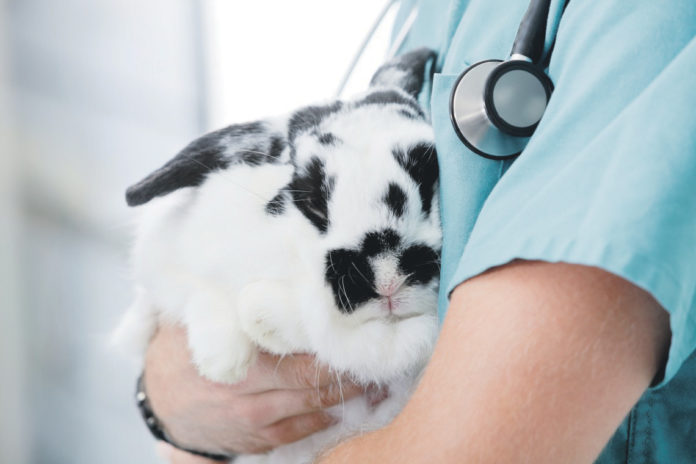
AFTER a beautiful Easter rabbits remain in the headlines for all the wrong reasons this week as a virus deadly to rabbits both in wild and domestic is prevalent in the UK and Ireland.
According to vets, the virus kills in just 24 hours and tragically there are usually no symptoms, and when rabbits finally show signs of the disease it is often too late. Experts have warned that not enough rabbits have been properly vaccinated, and are urging owners to take action to help prevent the disease.
Rabbits need at least one annual injection to prevent infection and according to a spokesperson from Rabbit Awareness Week (RAW) approximately only 15 per cent of rabbits in the UK and Ireland are currently protected.
What is RVHD2?
It is a virus that causes internal bleeding. This sadly means that many owners don’t notice any symptoms of this disease, and rabbits can simply be found dead or ill with no obvious cause.
How does RVHD2 spread?
Both strains of RVHD (1 and 2) are spread by direct contact with infected rabbits, or indirectly via their urine or faeces.
The virus can survive for months in the environment and it also survives well in the cold.
There are many ways in which RVHD2 can be spread, including:
Hay may have been in contact with infected wild rabbits as grass growing in the field.
Birds or insects may transport the virus on their feet (or in their droppings) to your rabbit grazing on the lawn.
The virus can also travel on the wind or you might bring the virus home on your feet, or your other pets’ feet (or car wheels) from infected wild rabbit droppings.
You can also bring the virus home on your hands or clothes.
Vaccinations, therefore, are absolutely essential to protect rabbits against devastating diseases and research from the 2018 PDSA Animal Wellbeing (PAW) report revealed that the main reasons rabbit owners didn’t vaccinate their rabbits were that their bunnies didn’t come into contact with other animals; they don’t think it’s necessary or that it’s too expensive.
According to the Rabbit Welfare Associate and Fund (RWAF), all pet rabbits should be vaccinated against both strains.
However, the study also showed that while rabbit owners show just as much love and affection to their bunnies as dog and cat owners sadly they seem to be less aware of the importance of preventive healthcare.
Caroline Allen, London Veterinary Director at the RSPCA spoke on the issue recently saying “We want to spread the message that all unvaccinated rabbits are at risk from diseases like RVHD-2, even if their rabbit doesn’t come into contact with other animals or wildlife.
“Infections can be carried on owners’ shoes or clothes, with other pets, and even via insects. Luckily a simple vaccination can keep your rabbits safe. “It’s worth the small cost to prevent heartbreak,” she explained.
She also pointed out that visiting your local vet for vaccination for your rabbit also provides a great opportunity for your bunny to receive a full MOT.
“Sadly, far too many rabbits are still dying from totally preventable diseases and regular vaccinations and health checks are a vital part of keeping your rabbits healthy and safe.
“Also if anyone is thinking about getting rabbits we would encourage them to consider giving a second chance to rescue rabbits.
“Not only is it a great way of giving an animal in need a new home but ensures your new rabbit have received essential preventative health care as they will already have had their vaccinations which can then be repeated annually”.
Meanwhile, an increasing number of vaccines are becoming available so if you own a rabbit then consult your vet for the best combination currently available and for advice on the your rabbit’s ongoing care.









